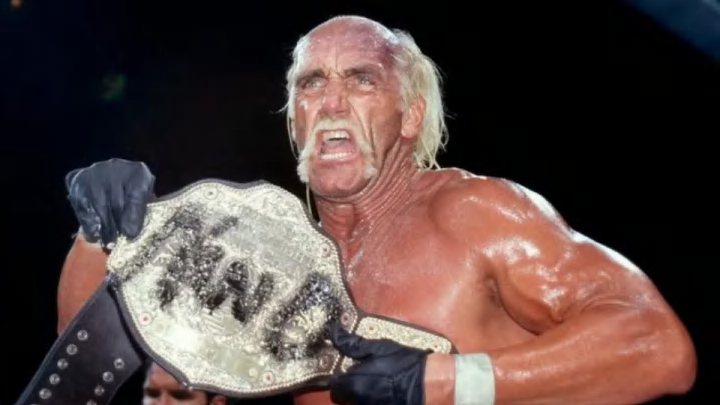Hulk Hogan on ‘Who Killed WCW?’ Show: ‘I Hope It Shows The Odds Eric Was Up Against’

Vice TV’s new Who Killed WCW? show is equal parts controversial and maddening.
Not to mention extremely successful.
Who Killed WCW? took its place last week as the number-one series launch ever for Vice TV. There is plenty of anticipation surrounding the finale of the four-part series, which airs tomorrow night.
SERIES FINALE 🔥☄️
— VICE TV (@VICETV) June 21, 2024
Our hit four-part series “Who Killed WCW?” is closing out with a banger: The Final Nitro.
Watch more Tuesday at 10P ET on VICE TV — and catch up online if you missed any episodes. pic.twitter.com/UTFw3O0s1c
Wrestling icon Booker T was the latest to speak out, vowing to never again be associated with the show’s producers–who also oversee Dark Side of The Ring–after stating his interview was taken out of context. A dive into a topic like this–what led to the downfall of a once-profitable wrestling company–was bound to leave some people upset, especially considering how the narrative would be presented.
WCW did the unthinkable in the 1990s, powering past Vince McMahon’s WWE as the top wrestling promotion in the world. It was led by a familiar face in Hulk Hogan, who guided WWE and McMahon to previously unheard-of heights a decade prior.
WCW underwent a makeover when Eric Bischoff acquired Hogan in 1994, then created an everlasting change–one that continues to resonate nearly 30 years later–when Hogan turned heel and formed the New World Order in the summer of ’96.
Hulk Hogan on nearly winning the AWA title:
— Justin Barrasso (@JustinBarrasso) June 18, 2024
“Verne Gagne came in the dressing room and said, ‘Hogan, you’re winning the match tonight–I need a good finish. Then he said, ‘And I’m getting half your Japan deal.’ That was a deal-breaker for me.”https://t.co/v0LS1zEOYz
“It’s not the flashiest story, but I can tell you what killed WCW,” said Hogan, who opted not to be part of the Vice TV project. “There was no way WCW was going to survive, not under those circumstances.”
Hogan is referring to the merger between American Online and Time Warner, which took place in 2001. Without a strong advocate for wrestling on the business end, like Ted Turner had repeatedly been during his successful run with Turner Broadcasting, there was no future for WCW with their new parent company.
“So many people knock Eric, but there was an opposition he was dealing with from the higher-ups in the company,” said Hogan. “He just wasn’t going to win that battle.”
Hogan stopped appearing for WCW in 2000, following a controversial incident at that summer’s Bash at the Beach pay-per-view with Vince Russo and Jeff Jarrett. That was before WCW was sold to McMahon in 2001, but Hogan believes the writing was already on the wall for the company.
“These were executives who had no idea what wrestling was all about, and they had no interest in learning,” said Hogan. “They wanted more traditional programming. They didn’t want rasslin’ in their high-brow portfolio. They weren’t interested, and nothing else mattered.”
As Who Killed WCW? reaches its conclusion, Hogan hopes there will be an emphasis on what–and not who–was responsible for the demise of the brand.
“I hope it shows the odds Eric was up against,” said Hogan. “You need to tell that if you’re going to tell the whole story.”
